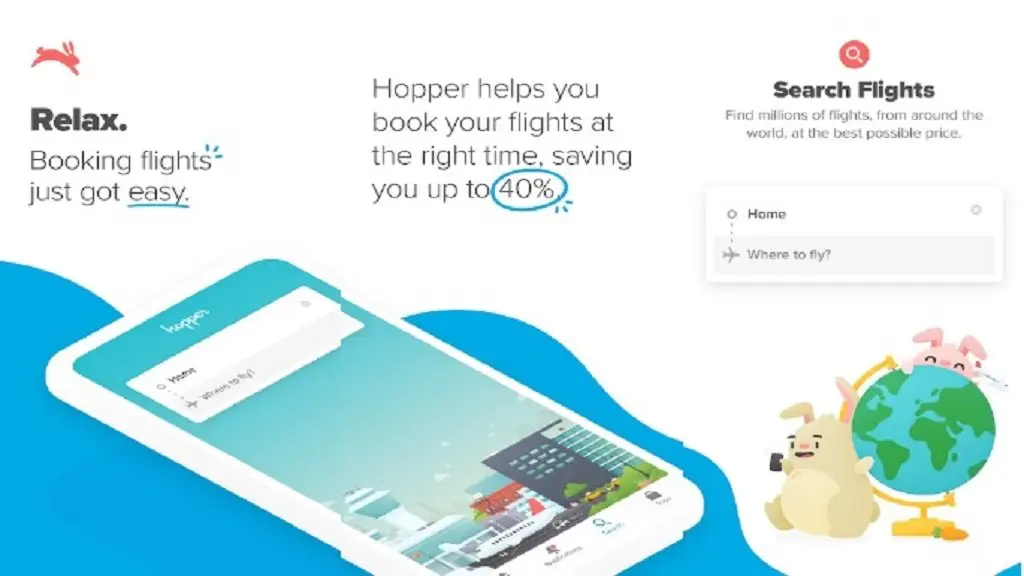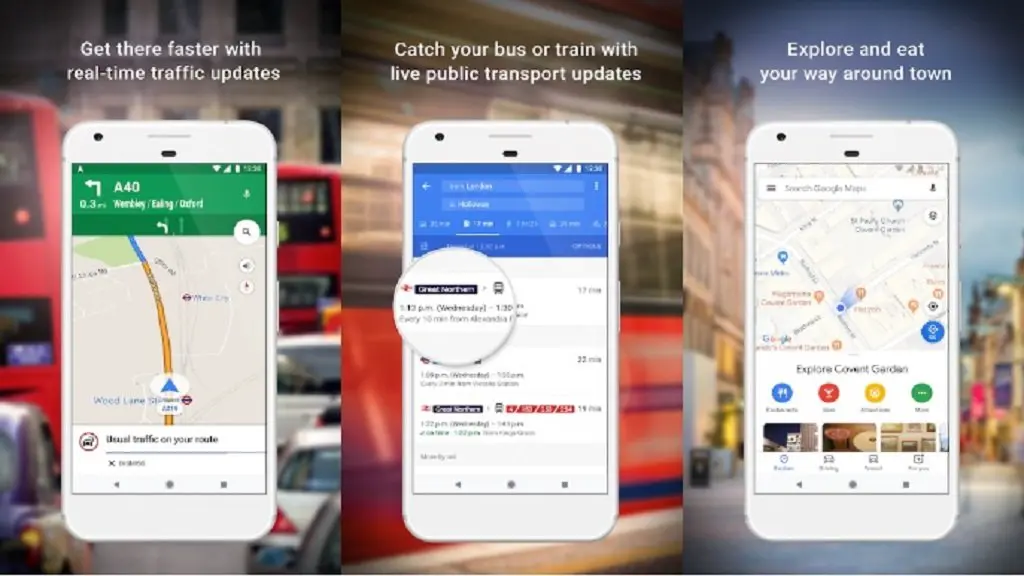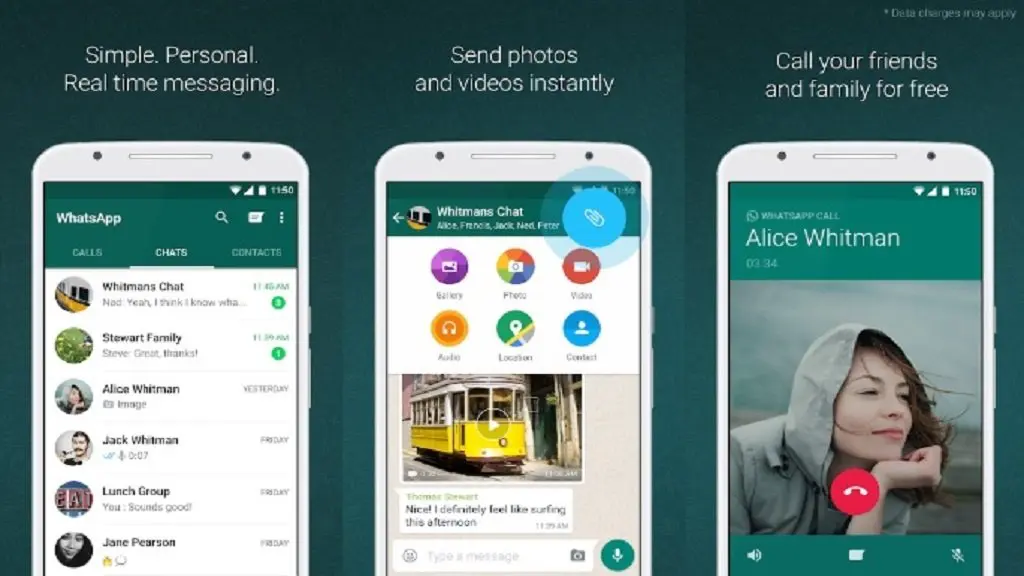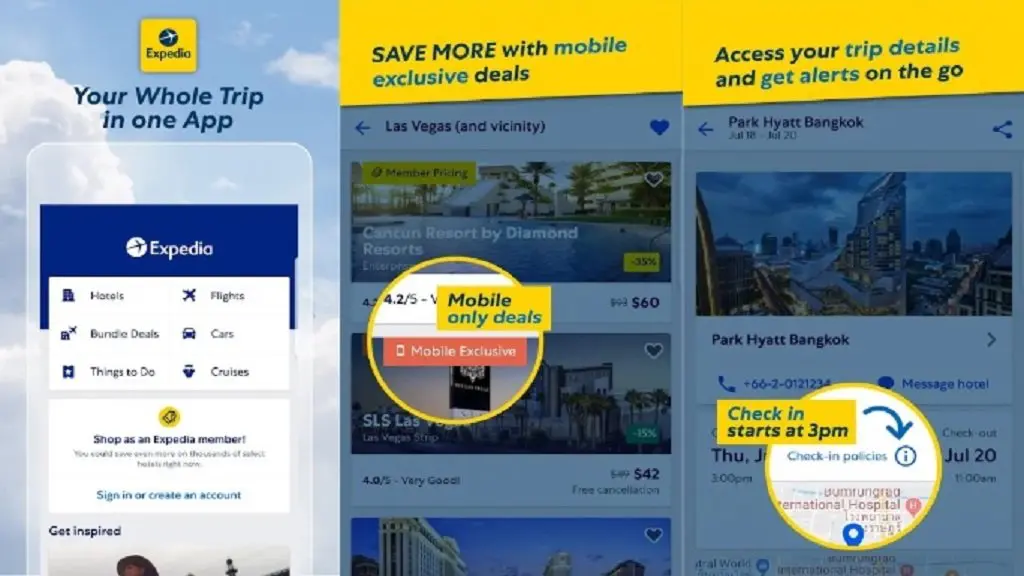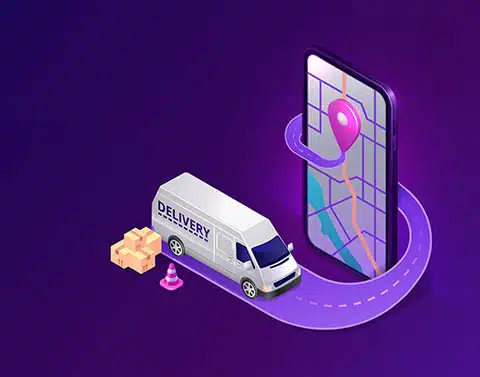Traveling can be incredibly rewarding and something to look forward to but at the same time. It can also be a source of constant stress and frustration. How should you book your tickets so you get the best deal? Where should you stay and where should you avoid? Where should you visit so you don’t miss out on any of the great sights? Here are the best travel apps for 2020-
JUMP TO:
1. Hopper: Best Flights Booking Apps
2. Airbnb: Best Travel Apps
3. HotelTonight: Best Hotel Booking Apps
4. Google Translate: Best Translation App
5. Duolingo: Best Language Learning Apps
6. Google Maps: Best Navigation Apps
7. AllTrails: Best Hiking & Running Apps
8. WhatsApp: Best Messenger Apps
9. Expedia: Hotels, Flights & Car Booking Apps
10. iExit: Best Exit Guide Apps
Fortunately, modern technology has made all of this incredibly easy. With the touch of a finger, an app can help you make all the hard decisions, saving your time and energy for what really matters: enjoying yourself. However, finding the right app can be a bit of a challenge. To help you out, here are ten apps that you need to know if you’re planning on traveling in 2020. If you’re interested in travel apps development, then learning from these incredibly popular examples can be a great way to get your travel application development off the ground.
Hopper: Best Travel Apps
Hopper (iOS, Android) is one of many apps that track flights and helps you get the best price. But it does a few things that help it stand out from the crowd. For starters, Hopper offers a degree of accuracy and helpfulness that other apps can’t come close to. Not only do you get full insight into what’s available right now. You get some educated predictions about whether the flights you want will have a price change in the future. Not only that, but Hopper will give you an idea of exactly. When those price changes will happen, giving you ample time to make your preparations and decide your schedule.
If you don’t have a set date and flight in mind, then that’s no problem either. Hopper provides you with an entire calendar of flights and prices, letting you see exactly when prices tend to be higher or lower. You might find a date and time that you hadn’t even considered, but is too good to pass up. If you’re eyeing a couple tickets, but aren’t completely sold on them yet. Then Hopper can keep track of them and send you notifications if anything changes.
Our experts can help you in developing your next world class travel apps.
Airbnb: Best Travel Apps
Airbnb (iOS, Android) One of the biggest names in the business nowadays, It is simple in concept and incredibly useful in execution. It helps connect travelers that need a place to stay with locals that have some extra space and want to make some extra money. If you’re looking to travel and either want to save some money or want a more homey vacation than the sterile hotel experience can provide. Then Airbnb is one of your best options. It cuts out all the awkwardness of manually searching through social media and initiating contact yourself. Instead letting you interact with the homeowner through a safe and convenient app.
However, that’s not all Airbnb offers anymore. They’ve also expanded to offering guidance everywhere from classes to restaurant reservations. Letting you plan out your entire trip with a single app. You get the knowledge of locals combined with the convenience of curation and online messaging.
HotelTonight: Best Hotel Booking Apps
HotelTonight (iOS, Android) This is one of those options that’s more for when planning has already failed. But that doesn’t make it any less effective at helping you find lodgings for the evening. Hotel Tonight gives you the full picture of what rooms are available where in your area. Often with pretty impressive discounts. Since these discounts tend to come from last-minute cancellations and the like. It can be difficult to use Hotel Tonight to plan out your trip in advance, but by the same token. It makes for a real lifesaver when your other plans fall through and you’ve got nowhere to stay for the night.
Nowhere is the immediacy of the app more obvious than the 15 minute deals. Where you are given a discount that expires within a quarter of an hour. You have to act fast if you want to get great savings. But that can be just the ticket for the panicking vacationer.

Google Translate: Best Translation App
Google Translate (iOS, Android) Getting cheap plane tickets is great and having a place to stay is even better, but what good is a trip if you can’t communicate with anyone there? What would have required a handbook and studying years ago is now easily accomplished with nothing more than a single app on your phone.
Even since the start of Google Translate, we’ve come a long way from having to manually type in letters and trying to sound out the proper words. Today, you can just open up the app and use it to immediately have a conversation. Type to translate, copy and translate any text you find on your phone, take photos and instantly translate any text in them, translate speech, and even translate while you’re offline, all with Google Translate.
Duolingo: Best Language Learning Apps
Google Translate is a great choice when you need some quick translating done in the moment, but if you want to prep and immerse yourself in the local culture, then Duolingo is one of the best options out there. With Duolingo, you can learn the basics and hone your skills with native speakers, ensuring that you’re never overwhelmed or underchallenged. You can slowly build up an understanding of the language at your own pace and through a mechanism that’s far more effective than rote memorization or generic grammar drills.
If you do decide to use Duolingo (iOS, Android), try to make a habit of using it consistently far ahead of your trip. It’s not a last-minute crutch for getting a quick translation, but rather for building up a real and useful understanding of the language. It’s also great for learning the in’s and out’s of the local speakers, so if you can find a partner that’s in the exact area you plan on visiting, that can be a very enlightening experience.

Google Maps: Best Navigation Apps
Google Maps (iOS, Android) Figuring out exactly where to visit after you’ve arrived can be daunting, but it doesn’t have to be. If you had a tool that not only mapped out the entire area and let you get a feel for where each attraction was, but also gave you detailed directions, information, and reviews on every popular sight, then you really wouldn’t need anything else. Google Maps provides that experience, giving you the full view on everything in the area, helping you visualize where things are and providing user reviews to help you decide what’s worth visiting and what isn’t.
Before you get started on your trip, you can use Google Maps to pick popular spots and find out where to avoid. However, once you’re actually there, Google Maps can come in doubly useful as a map whenever you need it. In many cases, Google Maps are even more effective than physical maps because the app reflects recent changes to the geography. Using Street View can make the experience even more useful because it can give you a perspective that no other map can.
Our experts can help you in developing your next world class mobile apps.
AllTrails: Best Hiking & Running Apps
AllTrails (iOS, Android) is the Google Maps of the outdoors, giving you detailed information, maps, and reviews on all sorts of outdoor activities, such as trails for hiking and biking. If you plan on getting out in the fresh air on your trip, the AllTrails can help you make good choices. The problem with using Google Maps for something like this is that while the satellite images may give you a good idea of what the terrain looks like from above, it may be lacking in user reviews and it almost certainly won’t have a Street View angle to help you get situated. On the other hand, AllTrails is specialized and dedicated to helping you pick out which trail is best.
WhatsApp: Best Messenger Apps
One big problem for international travelers lies in dealing with their cell phone provider. If you want to send messages, but don’t want to get hit with massive extra charges, then you may need an app like WhatsApp (iOS, Android). The short version is that WhatsApp lets you send messages without any extra fees, no matter who you’re chatting with or what country they’re in. Just install the app, enter your phone number, and you can message anyone with ease. However, that’s really just the tip of the iceberg. You can make calls at no cost as well, all you need is an internet connection.
Expedia: Hotels, Flights & Car Booking Apps
Expedia (iOS, Android) has grown to be a huge name in booking vacations and for good reason. For everything from flights to rooms and car rentals, Expedia can give you a comprehensive list of your options and how much each will cost. For comparing the most options possible, Expedia has little competition. If you travel often, they’re a particularly useful choice because they have a rewards program that rewards you with points that you can redeem.
iExit: Best Exit Guide Apps
iExit (iOS, Android) If you’re taking a road trip or you’re planning on doing a fair bit of driving at your destination, then iExit can come in very handy. The basic idea is that it points out exactly what you can find at each and every exit along the way, a real lifesaver when it comes to trips along particularly desolate stretches. From identifying the last place you can get gas before a stretch of hours in isolation to pointing out where you can get some good food, this app can help you plan out your driving to the small detail so that you know exactly where and when you should stop for maximum effect.
The Bottom Line
The key is to identify which travel apps you will need on your trip. If you don’t have your flight arranged already. Then you should find an app that lets you shop around for tickets and get the best deal. If you’re going to be somewhere that doesn’t speak the same language as you. Then either familiarize yourself with the language via an app like Duolingo or bring along an app like Google Translate that can give you translations the moment you need them. From picking where you’re staying to how you get there, what you’ll eat, and how you’ll entertain yourself. There is an app for everything.
If you’re looking into travel apps development for yourself, then focus on what makes each of these successful. They make things easier for the user, whether it’s by aggregating data in one convenient place or providing a new and valuable service. The key to travel application development is to give your user something that will make their trip easier, more relaxing, and cheaper.
Our experts can help you in developing your next world class apps.




